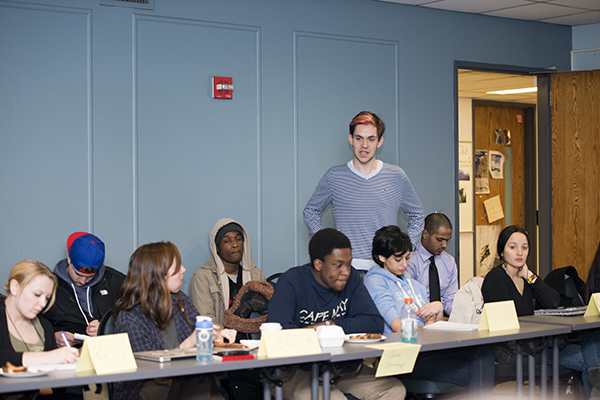

Beginning in August of this year, the healthcare insurance provider SUNY New Paltz offers will be inclusive of Transgender students.
Student Association (SA) recently passed a bill which will allow for a $25,000 allotment toward gender-affirming procedures. The money will come from a $7 increase in student healthcare fees, Assistant Director of Student Health Services Lori Mitchell said.
Though a provider has not yet been selected, Mitchell said they will give access and coverage for “Transgender therapies,” including hormonal, psychiatric and psychological therapies.
“From what we understand, it is a very long process,” Mitchell said. “There are psychiatric, psychological and hormonal therapies that need to be completed, and then you start talking about surgeries. It’s a really long process that happens over several years.”
The current bill was sponsored by Senator Bri Parsons, who said she wanted for there to be negotiations to insure that there would be inclusive healthcare for Transgender students.
SA Executive Vice President Zachary Rousseas said senators from previous Student Associations had told him in the past the school did not provide healthcare necessary for Transgender students.
“Back when Queer Student Union used to be Queer Action Coalition, there were Transgender students involved in the group who mentioned to me that there were other schools who provided healthcare for Transgender students,” Rousseas said. “I knew when I heard it that it was something I wanted to see happen.”
After initial discussions on what could be brought in from different healthcare providers between Rousseas and Mitchell took place, a survey was sent out to students on the current school health insurance policy to gauge interest in the inclusiveness of Transgender healthcare.
Mitchell said that 82 percent of the people who took the survey supported the notion of providing Transgender-inclusive healthcare. She said the $7 increase did not have the same amount of support, though the number was still high. There was also an option of whether or not students would pay more than $50 for unlimited Transgender healthcare, but the number of students willing to pay was low.
She also said the survey did not include what types of amenities would be included with the $25,000 allotment.
“So the $25,000 may not cover all of the surgery someone would need to transition, but it would cover the four years while you’re here, whether you initiated it before coming to New Paltz or while you were here, that was what we were hoping to do,” Mitchell said.
Parsons said while transitioning is a lifelong process, four years is a good amount of time for students to transition in a safe space.
“Four years is a short time for someone to start transitioning, but it’s not that hard once you get into the process,” Parsons said. “You’ll keep doing it so once you leave the school, you should have health insurance, especially with the Affordable Care Act. I do wish this had happened sooner, though.”
Rousseas said while New Paltz is not among the first schools to offer Transgender inclusive healthcare, it will hold a spot as a pioneer in picking up the policy.
“We aren’t the first school to be doing this, but we are in that first wave of schools who are providing Transgender healthcare,” Rousseas said. “It’s definitely something to be proud of.”
